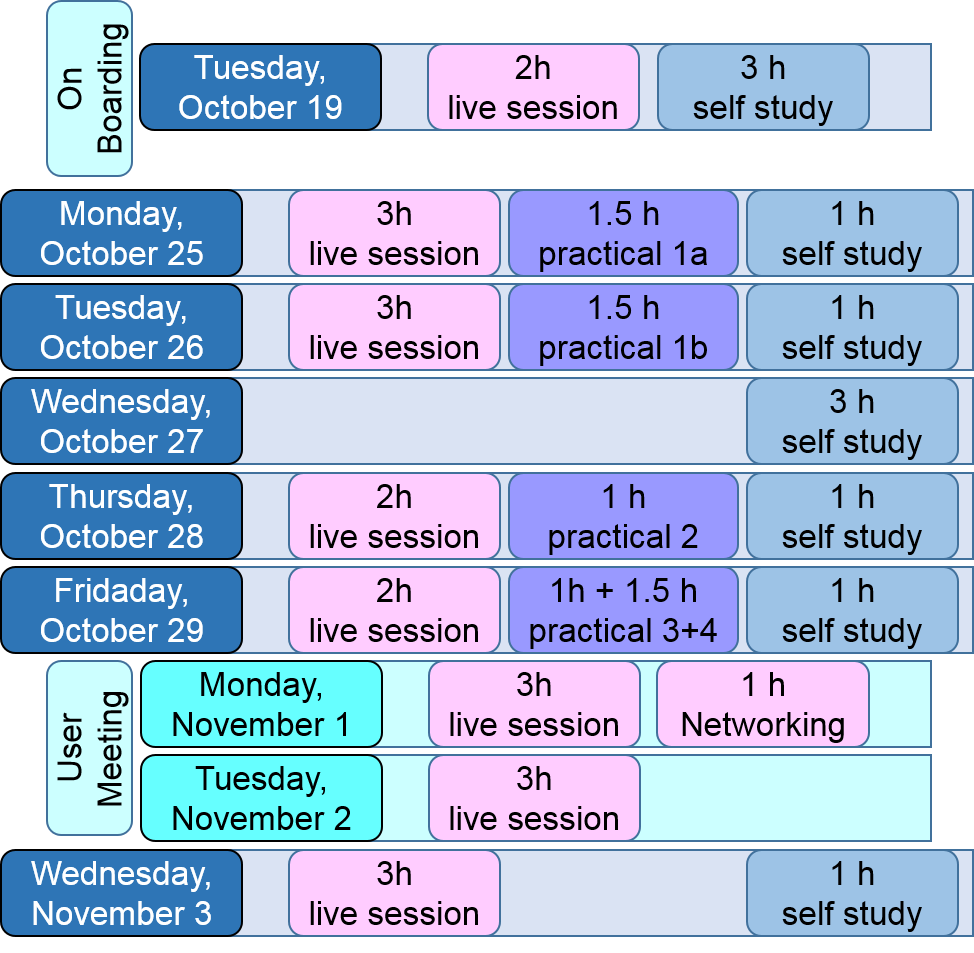About the Practical Course
The EMBO Practical Course is aimed at young scientists working in the field of structural biology including biochemists, biophysicists, bioinformaticians, and those specializing in macromolecular crystallography, electron microscopy, or NMR. Small angle X-ray scattering (SAXS) allows one to study native particles and complexes and to monitor structural changes in response to variations in external conditions (temperature, pH, salinity, ligands). Novel data analysis methods and a broader accessibility to high brilliance instruments on large scale facilities significantly enhanced resolution and reliability of structural models provided by SAXS. Emerging automation of the experiment, data processing, and interpretation made solution SAXS a streamlined tool for large-scale structural studies in molecular biology. The method provides low-resolution macromolecular shapes ab initio and is readily combined with other structural, biochemical, and computational techniques in hybrid approaches. The extremely broad range of molecular sizes accessible by SAXS, from kDa to GDa, allows one to monitor the interactions in hierarchical systems at different levels of structural organization.
The EMBO Practical Course has been shifted to a virtual format. The workshop will include live interactive sessions (total: 17 hours) with additional live practical sessions (total: 5 hours). Furthermore, a number of resources for self-study will be provided allowing the students to further dive into the world of SAXS. Self-testing quizzes will be available for students to control their understanding of the course curriculum.
The EMBO Practical Course participants are encouraged to send their own samples to perform synchrotron solution scattering experiments in advance (by EMBL staff) The results will be used for practical tutorials and discussed during the course.
Embedded into the schedule is the virtual P12 User Meeting with expected attendance by all students. This will allow students to network and connect to the scientific community. Topics like standards in the field and troubleshooting will be addressed and discussed. In addition, students will be given the chance to approach the speakers of the User Meeting in a dedicated Q&A session.
Image credits: Christiana Franke
About EMBO Courses and Workshops
EMBO Courses and Workshops are selected for their excellent scientific quality and timelines, provision of good networking activities for all participants and speaker gender diversity (at least 40% of speakers must be from the underrepresented gender).
Organisers are encouraged to implement measures to make the meeting environmentally more sustainable.





